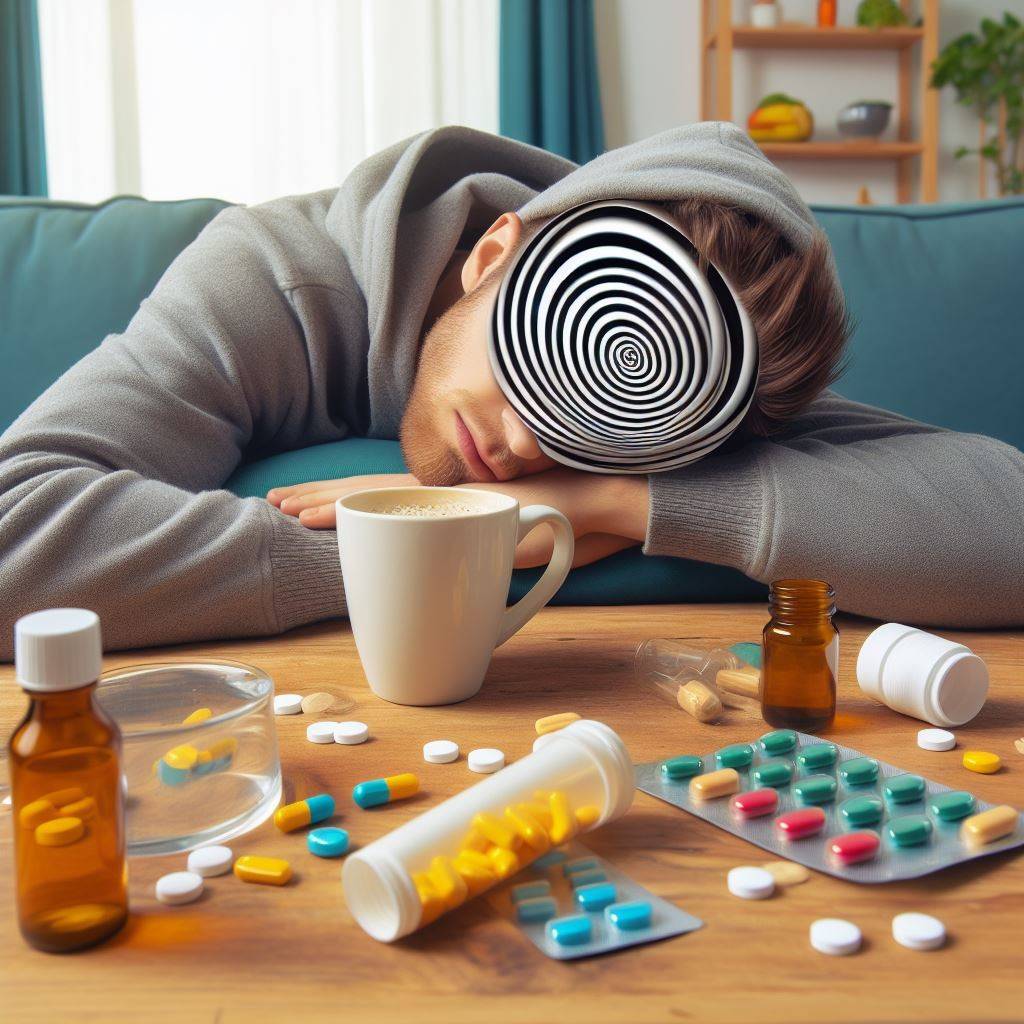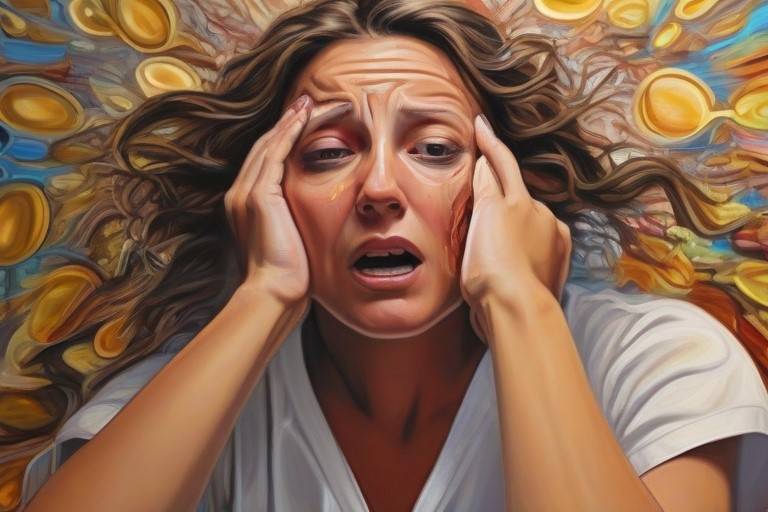Find Your Balance: 7 Simple Daily Tweaks to Stop Feeling Dizzy for Good
Introduction

Feeling dizzy can throw off your day and balance. It’s a common problem that makes many people uneasy and lowers focus. The news? Mild dizziness often goes away fast. But ongoing vertigo can hurt the quality of life.
The solution? Simple lifestyle tweaks. This blog shares seven straightforward fixes to answer “How to stop feeling dizzy?” Pinpoint the cause and make positive changes. Then, you’ll have fewer issues like lightheadedness, imbalance, blurred vision, and nausea.
Keep reading to regain stability and decrease disorienting dizziness through simple lifestyle changes. Minor adjustments can help restore equilibrium so you stop feeling dizzy and learn how to stop feeling dizzy.
What Causes Dizziness and Lightheadedness

Feelings of dizziness and lightheadedness can arise for a variety of reasons. Understanding the typical culprits behind sensations of the room spinning or losing balance can help you get to the root of the issue and learn how to stop feeling dizzy.
Some typical causes of dizziness include:
Underlying Medical Conditions
Several medical conditions that affect blood circulation or the inner ear can trigger temporary dizziness or more persistent bouts of vertigo. These include:
- Low blood pressure (hypotension)
- Anaemia – low red blood cell count
- Hypoglycemia – low blood sugar
- Inner ear infections
- Vertigo – the sensation of spinning
- Meniere’s disease
Consulting a doctor can determine whether you have any underlying conditions leading to feeling dizzy and help create a treatment plan.
Medications
Some medications can make you feel dizzy. Drugs that widen blood vessels, sedatives, and antidepressants may cause this. If you’re wondering how to stop feeling dizzy, talk to your doctor about adjusting your medications. It’s essential to discuss any persistent vertigo with them to find the right solution.
Dehydration/Nutritional Deficiencies
Not drinking enough water or lacking essential minerals like iron, vitamin B12, or electrolytes can cause dizziness. I was wondering how to stop feeling dizzy. Stay hydrated and address nutritional gaps to tackle lightheadedness and imbalance head-on.
Issues with Inner Ear or Vision
Issues with the inner ear or vision can cause dizziness. Problems inside the ear or with seeing make it hard for your body to balance correctly. This leads to sensations of feeling dizzy. An audiologist, eye doctor, or ear/nose/throat doctor can help determine if ear or vision issues make you dizzy. They can then treat the underlying problem, helping you learn how to stop feeling dizzy. Getting the correct diagnosis and treatment plan tailored to your ear or vision disorder will get your balance and stability back on track. Consulting hearing, vision, and balance specialists provides targeted solutions for inner ear or eyesight issues triggering dizziness.
Anxiety/Stress
For some, feelings of anxiety or high-stress levels cause dizzy spells. Anxiety and stress make your body go into “fight or flight” mode. This shifts blood flow away from the brain. The result can be temporary lightheadedness or dizziness.
Learning to manage anxiety and lower stress can help stop these dizzy feelings. Helpful strategies include meditation, yoga, talking to friends, or professional counselling. Figuring out what causes stress and finding healthy coping methods keeps dizziness away.
Knowing the root reasons why you feel dizzy allows you to take steps to find relief fast. If anxiety or stress seems to trigger your dizzy and unbalanced sensations, reducing stress through lifestyle changes and coping methods is critical to learning how to stop feeling dizzy.
7 Lifestyle Changes to Cure Dizziness and how to stop feeling dizzy

After we discuss the Causes of Dizziness and Lightheadedness, we dive into How to Stop Feeling Dizzy. Making a handful of daily lifestyle tweaks can make a big difference in learning how to stop feeling dizzy. Here are seven positive changes to implement right away to reduce bouts of lightheadedness and vertigo.
1. Stay Hydrated
One simplest yet most effective ways to prevent dizzy spells is to stay hydrated. Drink adequate water and electrolyte-rich fluids throughout the day. Signs of dehydration to watch out for include infrequent urination, dark yellow urine, dry mouth, headache, cramping, and fatigue.
Fulfilling your daily fluid needs will help stabilize fluid levels and minerals in your blood. This allows oxygen and nutrients to reach your cells and tissues better, keeping the body balanced and minimizing feeling dizzy. So, how do you stop feeling dizzy? Start with staying hydrated!
2. Adjust Your Diet
Eating frequent small meals every 3-4 hours helps maintain steady blood sugar levels, preventing drops that can trigger temporary dizziness. Choose complex carbohydrates like whole grains, oatmeal, and sweet potatoes. Adding more iron-rich foods like red meat, spinach, and beans can help reduce dizzy spells if anemia is a factor.
3. Take Breaks When Needed
It’s crucial not to ignore symptoms or push through bouts of feeling dizzy. Take a break to sit or lie down and give your body time to recover equilibrium when a sensation of spinning or unsteadiness occurs. Trying to tough it out often makes dizziness worse. Implementing healthy breaks is vital for reducing dizzy feelings.
4. Reduce Stress Levels
For some individuals, anxiety and high stress is the root cause of dizzy sensations. Making time each day for relaxing activities like light yoga, meditation, enjoyable hobbies or talking things through with a friend is incredibly beneficial. As overall stress levels decrease, so should stress-triggered bouts of dizziness and feeling lightheaded.
5. Improve Sleep Habits
Aim for 7-9 hours of quality sleep daily and keep your bedtime and wake-up time consistent. Lack of adequate sleep hampers concentration and reaction time, which can increase lightheaded spells. Getting sufficient restful sleep supports healthy brain and neurological functioning to sidestep dizziness.
6. Balance Vitamins and Supplements
Ask your doctor about taking supplements like vitamin B12, iron, magnesium, or electrolytes if you have deficiencies in these that often produce feeling dizzy. Never start new accessories without consulting your physician regarding optimal types and dosage. Proper nutrient levels prevent dizzying sensations.
7. See Your Doctor
It’s important to rule out any serious underlying illness that could be causing recurring bouts of dizziness and vertigo. Your doctor can check for conditions like low blood pressure or inner ear dysfunction and adjust medications if side effects like feeling lightheaded occur. Implementing lifestyle changes alongside proper medical treatment is critical for long-term relief from dizziness.
Being proactive about minimizing triggers that commonly cause dizzy sensations plus making healthy lifestyle changes pays off. Stay diligent in your prevention efforts; you’ll soon feel balanced and steady.
When to Seek Emergency Care for Dizziness
Most dizziness goes away on its own. However, some severely dizzy episodes require emergency care. Get help right away if you have:
- Sudden, extreme or worsening dizziness
- The room keeps spinning without stopping
- Dizzy spells plus chest pain or pressure
- Trouble breathing and feeling dizzy
- Pass out or can’t respond while dizzy
These severe signs mean you need ER care fast—every minute matters. Call 911 or have someone drive you to the hospital if you have severe dizziness along with concerning symptoms. Finding the cause and prompt treatment is critical to knowing how to stop feeling dizzy in extreme cases. Don’t wait for emergency help if your dizziness has alarming additional symptoms.
Conclusion about How to Stop Feeling Dizzy
The simple, effective lifestyle changes above can significantly help dizziness. Things like staying hydrated, eating well, taking breaks and managing stress make a big difference. Making these minor, sustainable improvements and sticking to them long-term is vital for stopping dizzy spells. While lifestyle adjustments help reduce dizziness, ongoing lightheadedness needs medical testing. Have your doctor check for underlying causes of feeling dizzy. They may adjust medicines if side effects cause spinning sensations. Combining healthy lifestyle habits with professional treatment is essential for learning how to stop feeling dizzy. Work with your doctor to get to the root of persistent dizziness and vertigo. Teaming self-care and medical care helps get your balance back on track long-term.
FAQs about How to Stop Feeling Dizzy
Here are the common frequently asked questions about How to Stop Feeling Dizzy. And the best answers for them.
What is the best thing to do for dizziness?
The best things to do for dizziness are to stay hydrated, eat small meals to stabilize blood sugar, try relaxation techniques, and check with your doctor if symptoms persist. Often, something simple like drinking more water or taking a short break when you feel lightheadedness coming on does wonders to alleviate it quickly. But if it happens a lot, some changes in your diet, stress levels, sleep routine, or medication dose could give more lasting relief so you can stop feeling dizzy.
How can I solve my dizziness problem?
With dizziness, pinpointing the cause is critical to solving the problem. Upping my water intake and salt foods honed it right away. But my sister got an inner ear infection causing hers – prescription ear drops cleared it up fast. If small home remedies don’t rapidly improve frequent dizzy spells or lightheadedness, your doctor can run tests to figure out why it’s happening and the best treatment plan for you. Getting to the root issue is how to stop feeling dizzy for good.
How do I get rid of a lighthead?
When a light head comes on, the easiest thing that gives me relief fast is to sit down, lower my head between my knees and take some deep “belly breaths”. Slowing down for 5-10 minutes gives my system a reset without fail. Splashing some cool water on my face and neck helps, too. Prevention is also vital for persistent lightheadedness – things like staying well hydrated, sleeping enough, and managing stress keep it away from me. Those tips can help you stop feeling dizzy fast.
Why do I feel a little dizzy?
Little dizzy spells crop up for various reasons but feeling continually lightheaded warrants a closer look. If my diet’s been spotty, a small snack perks me. Dehydration, overheating, standing up too fast, or being overly stressed can trigger it too. But if no obvious explanation arises, it’s wise to make a doctor’s appointment. Getting to the bottom of ongoing dizziness gives you the info and treatments how to stop feeling dizzy for good.



